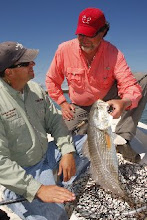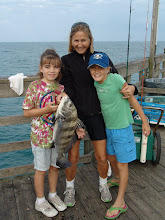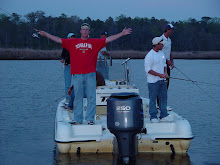Republican Caucus Secretly Kills Game Fish Again
Caucus Tells Recreational Fishermen They Have No Say in How Salt Water Fish Are Managed
In 2009, then Senator Mark Basnight and his confidant Representative Tim Spear, both Democrats aligned with commercial fishing interests, killed game fish without a vote.
Governor Bev Perdue killed it in 2011 when Republicans traded game fish to override her veto of the budget with two dissident Coastal Democrats, one of them being Tim Spear.
Here we are in 2013 and the Republican Caucus, operating in secret and without warning, killed HB 983, the Fisheries Economic Development Act, commonly called the game fish bill, a week ago under the guise of it being a local issue.
The Republican Caucus in the House essentially has told the more than 500,000 recreational salt water fishermen in the state, that they have no vote, no say in how the salt water fishery is managed. A few coastal Representatives, again with ties to the commercial fishing sector, have decided for all of the state’s recreational fishermen that the commercial fishing industry will manage the fish.
We all know how well that has worked out for our fish in the past. Reminds us of the line in the song, “
Hello to the new boss, same as the old boss.”
Not a Local Issue
Anyone with a grain of sense realizes that this issue has the potential to benefit the entire State. Over 500,000 licensed recreational salt water anglers live across the state from Manteo to Murphy.
Maybe we should let coastal residents pay for hurricane damage to coastal roads, pay for beach nourishment and channel dredging, ferry boats, and so on. No, we recognize that all citizens must help one another in these public matters.
If these issues are not local issues, then game fish is not a local issue.
Fish are Valuable as Recreational Fish
Only three commercial fishermen caught, sold, and reported selling over $10,000 worth of estuarine striped bass, speckled sea trout, and red drum in any combination. These three fish constitute less than one percent of the total annual commercial catch and account for only about $3 million annually and 28 jobs according to the 2012 figures from the Division of Marine Fisheries.
The recreational value of the three fish is $131 million for the same period and supports 1.267 jobs. This appears to be a no brainer. Anyone who cannot see the imbalance here is a no brainer. Over 30 species of finfish in inshore waters are open to commercial fishing; not one fish is managed as a game fish.
If game fish had been enacted into law, the commercial sector still would be harvesting over 99 percent of the fish they are harvesting now. Even without the three game fish!
The management of fisheries for commercial harvest creates a persistent drag on the population that over time always depletes the population and requires emergency and drastic action to save the fishery. We were too late in the case of the gray trout, the sturgeon, the river herring and we are just beginning to see recovery in the red drum, striped bass, and flounder. Extraordinary measures by recreational fishermen have led the way toward recovery with commercial fishermen complaining about government interference all the way.
A fool and His Votes Are Soon Parted
Leading Republicans told us to elect them and they would run our state like a business and allocate our valuable resources of all kinds for the highest and best use of all citizens. We were told “You get Republicans elected and we will pass game fish.“ Really.
We elected Republicans to Office as Governor, Speaker of the House, and President Pro Temp of the Senate. Killing game fish in this way is not consistent with your promises and will not sit kindly with the majority of over 500,000 licensed recreational fishermen as they cast their votes in the next election. Do you want to lose all you have gained over a few fish? It could happen!


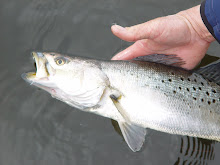



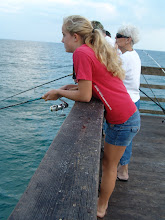

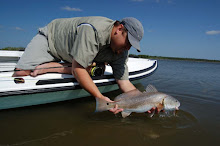.jpg)


